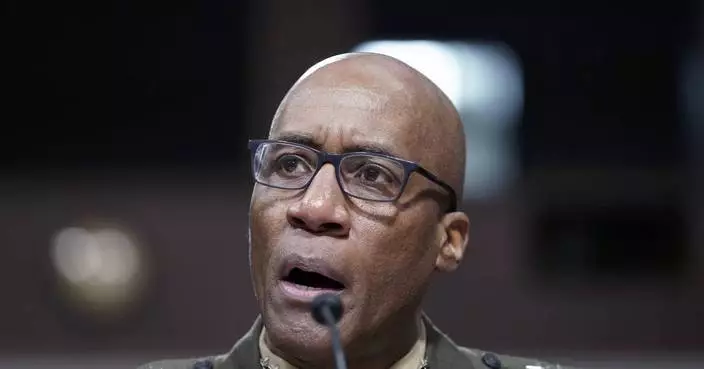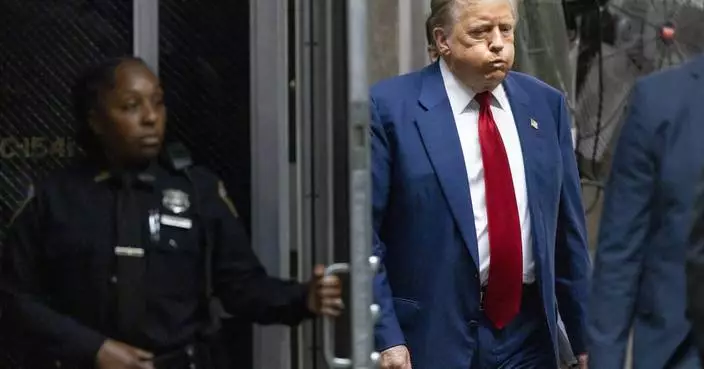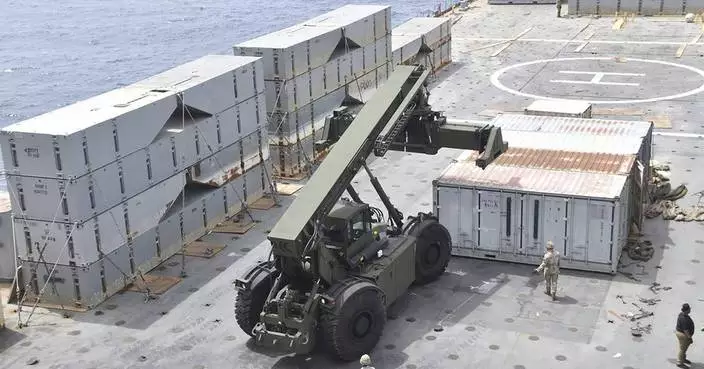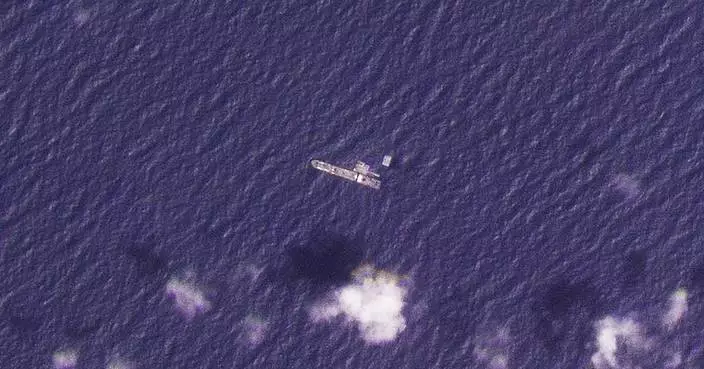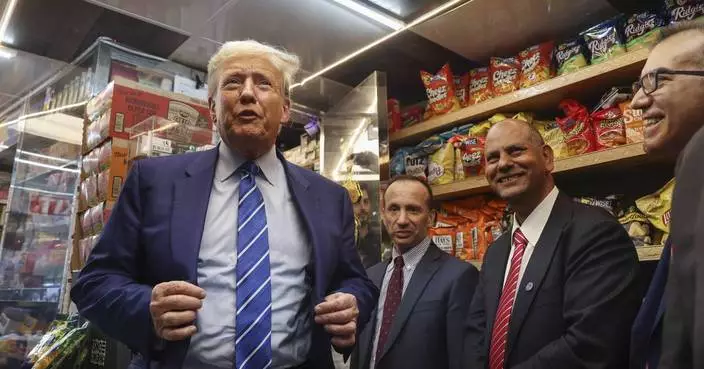President Donald Trump hailed it as a great day for civilization, but the agreement hammered out Thursday in Ankara between U.S. and Turkish leaders spawned more questions than answers.
The deal calls for a five-day pause in fighting between Turkish and Kurdish fighters and puts at least a temporary halt to the battle along the Syrian border. It also gives the Turks the 20-mile-deep safe zone in Syria that leaders in Ankara have sought for months. But what it means for U.S. forces currently withdrawing from Syria remained unclear.
A look at the key provisions of the deal and remaining uncertainties:
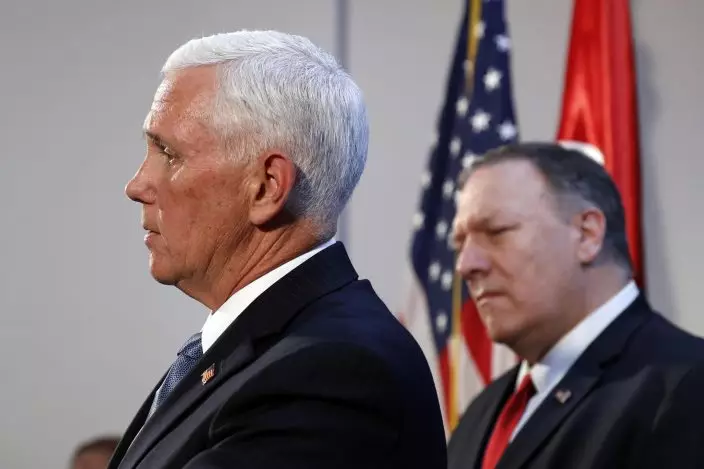
Vice President Mike Pence speaks at the U.S. ambassador's residence during a news conference with Secretary of State Mike Pompeo after their meeting with Turkish President Recep Tayyip Erdogan, Thursday, Oct. 17, 2019, in Ankara, Turkey. Pence says the U.S. and Turkey have agreed to a cease-fire in Syria. (AP PhotoJacquelyn Martin)
THE AGREEMENT
A U.S. delegation led by Vice President Mike Pence met with Turkish leaders, including President Recep Tayyip Erdogan, for more than four hours Thursday and agreed to the five-day cease-fire in the Turkish assault on Kurdish fighters in northern Syria. The arrangement says the Syrian Kurdish fighters will withdraw out of what has been called a safe zone that is about 20-miles deep into Syria and stretches across about 125 kilometers (78 miles) of the central portion of the border between the two countries.
But almost immediately there were disagreements over what to call the deal and what it meant. Pence and Trump routinely referred to it as a cease-fire. Turkish Foreign Minister Mevlut Cavusoglu rejected that term and called it a "pause" in fighting, because he said cease-fires are only possible between "two legitimate sides." Cavusoglu also said that the Turks would only halt their operation "after the terrorist elements depart" from northeast Syria.
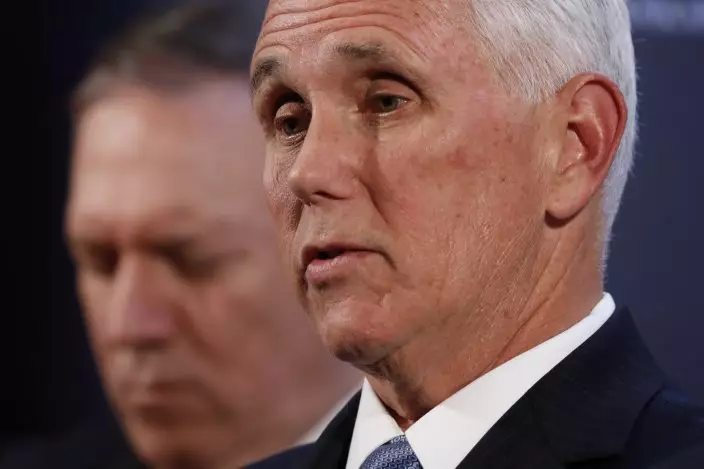
Vice President Mike Pence speaks at the U.S. ambassador's residence during a news conference with Secretary of State Mike Pompeo after their meeting with Turkish President Recep Tayyip Erdogan, Thursday, Oct. 17, 2019, in Ankara, Turkey. Pence says the U.S. and Turkey have agreed to a cease-fire in Syria. (AP PhotoJacquelyn Martin)
What also remained unclear is what the Turkish-backed militias of Syrian fighters will do and how much control the Turkish military will have or try to exert over them.
WHAT THE TURKS GET
In return for the cease-fire, the Turks will get what they have wanted all along: control of the safe zone in Syria and, if the cease-fire holds, a halt to the economic sanctions that Trump announced Monday when he warned that he could obliterate Turkey's economy.
THE U.S. WITHDRAWAL
There were mixed signals Thursday over what the agreement means for U.S. forces that began a withdrawal from Syria earlier this week as fighting between the Turkish and Kurdish forces escalated and began to threaten the safety of American troops. U.S. officials said the ongoing withdrawal was continuing and would probably take a couple of weeks.
Pence reiterated that, as Trump has said, the U.S. will not have "military personnel on the ground," but other diplomatic and humanitarian aid would go on. He also said that the U.S. will "facilitate" the orderly withdrawal of the Kurdish forces from the safe zone that is already beginning. And Trump said the U.S. will continue to watch the Islamic State, and that the Kurdish fighters will control that monitoring with U.S. supervision. Pentagon officials did not provide an explanation of how that would work.
ISLAMIC STATE GROUP
As the U.S. withdraws, a fundamental question is what the battle to prevent a re-emergence of the Islamic State will look like. U.S. officials have provided little guidance, but they note that the U.S. can, if needed, launch strikes from bases in Iraq near the Syria border. In addition, the U.S. is leaving, at least for now, 200 to 300 troops at the Al Tanf base in southern Syria.
ISLAMIC STATE PRISONERS
One of the biggest threats in the conflict has been the potential that thousands of imprisoned IS fighters could escape. Kurdish forces have been guarding the prisons, but some fighters have left to join the battle along the border. And shelling in some areas may have led to the escape of fewer than 100 detainees.
Trump said that the detained will be controlled by "different groups." But he added that the U.S. "will be watching. We will be in charge. And they will be under very, very powerful and strict control." That may be hard to do if U.S. troops are not physically in Syria.
WASHINGTON (AP) — The United States on Wednesday imposed new sanctions on hundreds of companies and people tied to Russia's weapons development program, more than a dozen Chinese entities accused of helping Moscow find workarounds to earlier penalties, and individuals linked to the death of Kremlin opposition leader Alexei Navalny.
The actions by the departments of Treasury and State target Russia’s military-industrial base, chemical weapons programs and people and companies in third countries that help Russia acquire weapons components as its invasion of Ukraine has entered its third year.
Treasury Secretary Janet Yellen said the action “will further disrupt and degrade Russia’s war efforts by going after its military industrial base and the evasion networks that help supply it.”
The Senate, meanwhile, gave final approval to legislation barring imports of Russian uranium, boosting U.S. efforts to disrupt Russia’s war in Ukraine. Democratic President Joe Biden is expected to sign the bill into law.
About 12% of the uranium used to produce electricity at U.S. nuclear power plants is imported from Russia, according to the U.S. Energy Information Administration.
A spokesperson for the National Security Council said Wednesday that Biden shares lawmakers’ concerns about U.S. reliance on Russia for low-enriched uranium to support its domestic nuclear fleet.
Included in the administration's announcement are importers of cotton cellulose and nitrocellulose, which are used to produce gunpowder, rocket propellants and other explosives. The penalties also target Russian government entities and people tied to Russia's chemical and biological weapons programs, companies related to Russia's natural gas construction projects and three workers at the penal colony where Navalny died.
Russian President Vladimir Putin has railed against earlier rounds of U.S. and Western penalties, claiming they are “illegitimate sanctions” on his country.
A group of 16 targets in China and Hong Kong, most of which are related to Russian procurement workarounds, are named by the Biden administration.
Yellen traveled to Guangzhou and Beijing last month to warn Chinese officials that they “must not provide material support for Russia’s war and that they will face significant consequences if they do."
China has said it is not providing Russia with arms or military assistance, although Beijing has maintained robust economic connections with Moscow, alongside India and other countries, as the West imposes sanctions.
Companies in China, Azerbaijan, Belgium, Slovakia, Turkey and the United Arab Emirates were accused of helping Russia acquire technology and equipment from abroad. The penalties aim to block them from using the U.S. financial system and bar American citizens from dealing with them.
Biden last week said he would immediately rush badly needed weaponry to Ukraine as he signed into law a $95 billion war aid measure that also included assistance for Israel, Taiwan and other global hot spots.
The upcoming uranium ban is also expected to impact Russian revenues by at least $1 billion. The U.S. banned Russian oil imports after Russia invaded Ukraine in early 2022 but did not against uranium, despite frequent calls to do so by U.S. lawmakers in both parties.
Wyoming Sen. John Barrasso, the top Republican on the Senate Energy and Natural Resources Committee, called the import ban “a tremendous victory” and said it “will help defund Russia’s war machine, revive American uranium production and jumpstart investments in America’s nuclear fuel supply chain.″
“Wyoming has the uranium to replace Russian imports, and we’re ready to use it,″ Barrasso added.
West Virginia Sen. Joe Manchin, a Democrat who heads that Senate committee, said it was "unconscionable” for the U.S. to help make it possible for Putin to “finance his unlawful war against Ukraine” through U.S. reliance on Russian uranium.
Besides the import ban, the legislation frees up $2.7 billion in previously authorized funding to ramp up domestic uranium production.

FILE- This June 6, 2019, file photo shows the U.S. Treasury Department building at dusk in Washington. The United States has imposed new sanctions on hundreds of firms and people tied to Russia’s weapons development program, more than a dozen Chinese firms accused of helping Russia find workarounds to sanctions and individuals tied to the death of Russian dissident Alexey Navalny. The sanctions imposed Wednesday by the Treasury and State departments target Russia’s military-industrial base, chemical weapons programs and people and firms in third countries that help Russia acquire weapons components as its invasion of Ukraine has entered its third year. (AP Photo/Patrick Semansky, File)







